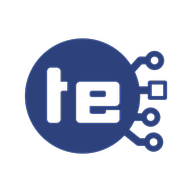TLDR, A malware disguised in sponsorship email stole chrome session cookies.
I have been writing about this serious flaw in Windows security for some time now (maybe mac os has this flaw too, I dunno). I have written about it several times on TE itself. There's gotta be an inbuilt mechanism to stop any random program reading the data that it's not supposed to.
Your data including passwords saved in chrome can be read by any of the 1000s of programs running on your computer. It's as simple as that.
If you ever had shared a random folder from C drive then your passwords can be read through network too.
Microsoft and google believe in security based on honor.
If you ever had a virus on your computer and if you save passwords in chrome then your passwords have already been stolen.
Stealing passwords or session cookies is the same thing as they are found in the same place. There's a way to block this kind of attack that I know of and use. We can protect Google folder using windows security > ransomware protection > controlled folder access. Google folder is inside your app data folder.
Linus should have called out Microsoft too for this too mammoth of a flaw. I know Windows is legacy and poop. But at some point MS has to start building a truly next gen of OS. It gotta open some Doors.


